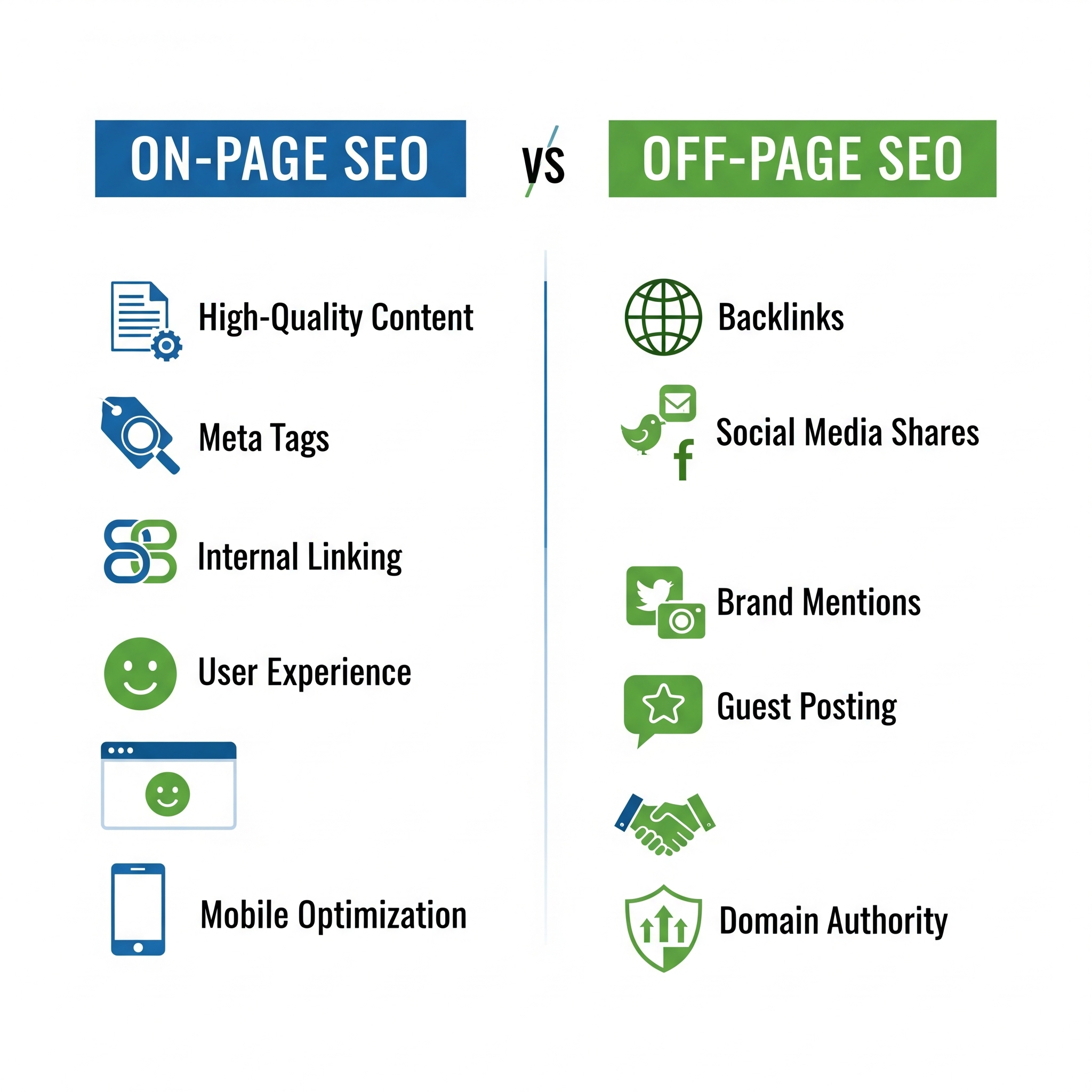Introduction
Search engine optimization (SEO) plays a vital role in increasing a website’s visibility. To rank higher on search engine results pages (SERPs), businesses must understand the two core strategies: On-Page SEO and Off-Page SEO. Although these methods share the same goal, they differ in execution. In this article, we’ll break down the key differences and explain how both strategies complement each other.
What is On-Page SEO?
On-Page SEO focuses on optimizing elements within your website. These are the factors you control directly, such as:
- Content quality – Creating original, valuable, and keyword-optimized content.
- Meta tags – Optimizing title tags, meta descriptions, and headers.
- URL structure – Using SEO-friendly slugs and clean navigation.
- Internal linking – Connecting relevant pages within your website.
- User experience (UX) – Ensuring mobile-friendliness, fast loading speed, and clear design.
For a deeper guide, see Moz’s On-Page SEO guide.
What is Off-Page SEO?
In contrast, Off-Page SEO involves actions taken outside your website to influence rankings. These factors help search engines understand how credible and authoritative your site is. Key strategies include:
- Backlink building – Earning links from trusted, high-authority websites.
- Social signals – Engagement through social media shares and mentions.
- Brand mentions – References to your business across the web.
- Guest posting – Writing articles for other websites to gain authority.
To explore more, check out Ahrefs’ Off-Page SEO overview.
On-Page SEO vs. Off-Page SEO: The Key Differences
While both strategies aim to improve rankings, they differ in approach:
- On-Page SEO focuses on internal website optimization.
- Off-Page SEO strengthens external signals of credibility and trust.
Think of On-Page SEO as building the foundation of your house. Off-Page SEO, meanwhile, is the reputation that house earns in the neighborhood.
For detailed differences, refer to Semrush’s SEO guide.
Why Both On-Page and Off-Page SEO Matter
Neither On-Page SEO nor Off-Page SEO works effectively on its own. A perfectly optimized website won’t rank if it lacks authority. Likewise, backlinks won’t help if the site has poor content or technical issues. Combining both ensures long-term growth.
Example: A blog with strong On-Page SEO (fast speed, structured headings, optimized keywords) can gain higher value from Off-Page SEO (backlinks from trusted sites).
Practical Tips to Balance Both
- Regularly update and audit your content for accuracy.
- Optimize images with alt text and compression.
- Reach out to industry influencers for collaboration.
- Use tools like Google Search Console to track performance.
Conclusion
Understanding On-Page SEO vs. Off-Page SEO is essential for building a sustainable digital strategy. On-Page SEO improves your site’s structure and content, while Off-Page SEO enhances its credibility and reach. Together, they create a powerful synergy that drives traffic, boosts visibility, and increases conversions.




